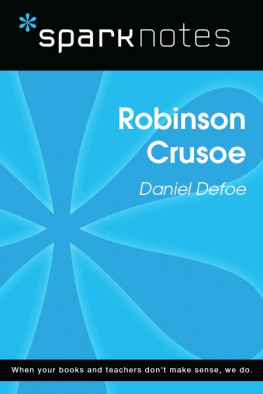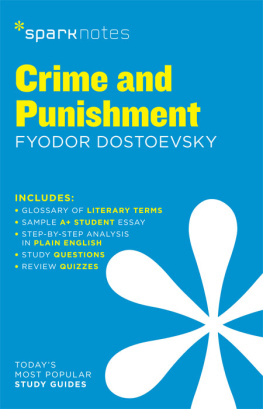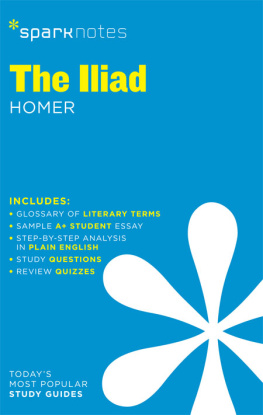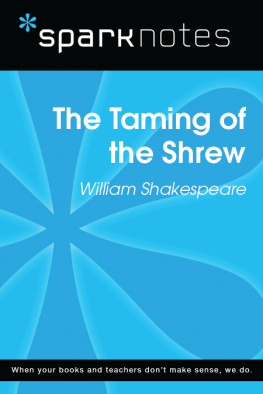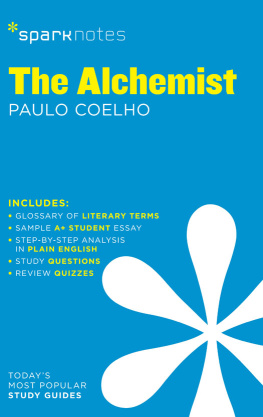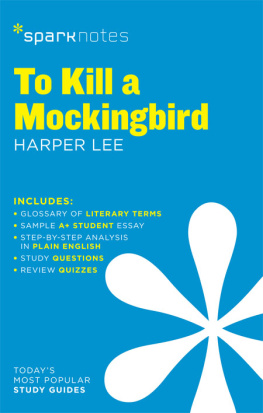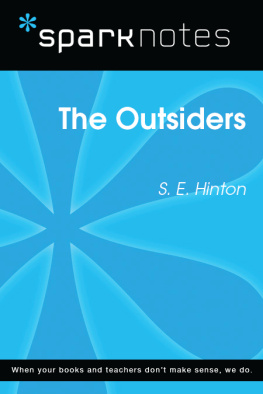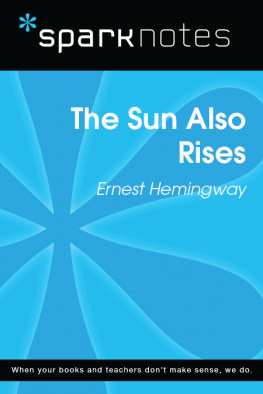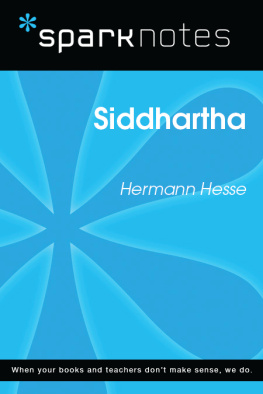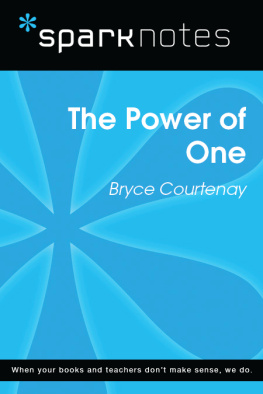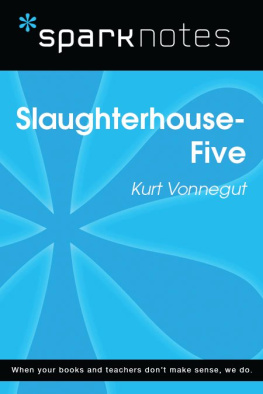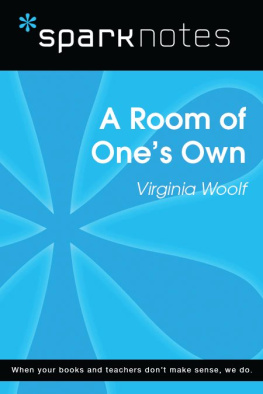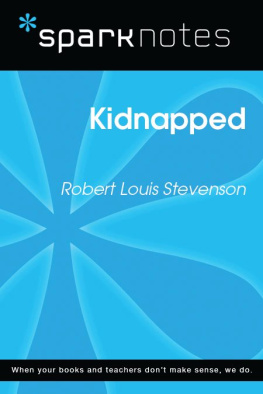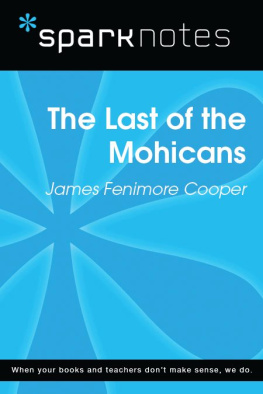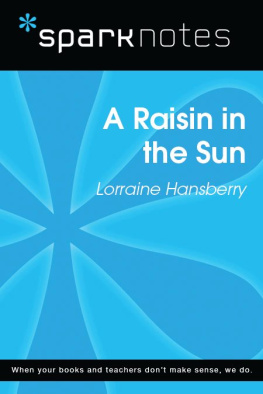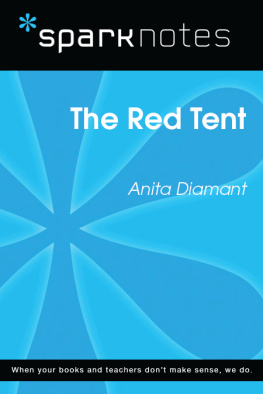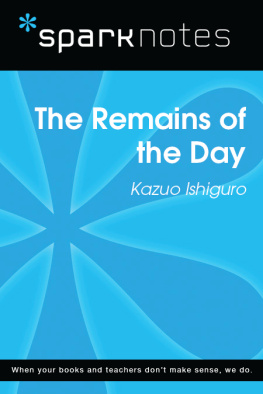SparkNotes - Robinson Crusoe
Here you can read online SparkNotes - Robinson Crusoe full text of the book (entire story) in english for free. Download pdf and epub, get meaning, cover and reviews about this ebook. year: 2014, publisher: Spark, genre: Detective and thriller. Description of the work, (preface) as well as reviews are available. Best literature library LitArk.com created for fans of good reading and offers a wide selection of genres:
Romance novel
Science fiction
Adventure
Detective
Science
History
Home and family
Prose
Art
Politics
Computer
Non-fiction
Religion
Business
Children
Humor
Choose a favorite category and find really read worthwhile books. Enjoy immersion in the world of imagination, feel the emotions of the characters or learn something new for yourself, make an fascinating discovery.
- Book:Robinson Crusoe
- Author:
- Publisher:Spark
- Genre:
- Year:2014
- Rating:3 / 5
- Favourites:Add to favourites
- Your mark:
- 60
- 1
- 2
- 3
- 4
- 5
Robinson Crusoe: summary, description and annotation
We offer to read an annotation, description, summary or preface (depends on what the author of the book "Robinson Crusoe" wrote himself). If you haven't found the necessary information about the book — write in the comments, we will try to find it.
Making the reading experience fun!
Created by Harvard students for students everywhere, SparkNotes is a new breed of study guide: smarter, better, faster. Geared to what todays students need to know, SparkNotes provides: *Chapter-by-chapter analysis
*Explanations of key themes, motifs, and symbols
*A review quiz and essay topicsLively and accessible, these guides are perfect for late-night studying and writing papers
Robinson Crusoe — read online for free the complete book (whole text) full work
Below is the text of the book, divided by pages. System saving the place of the last page read, allows you to conveniently read the book "Robinson Crusoe" online for free, without having to search again every time where you left off. Put a bookmark, and you can go to the page where you finished reading at any time.
Font size:
Interval:
Bookmark:

2003, 2007 by Spark Publishing
This Spark Publishing edition 2014 by SparkNotes LLC, an Affiliate of Barnes & Noble
All rights reserved. No part of this publication may be reproduced, stored in a retrieval system, or transmitted in any form or by any means (including electronic, mechanical, photocopying, recording, or otherwise) without prior written permission from the publisher.
Sparknotes is a registered trademark of SparkNotes LLC
Spark Publishing
A Division of Barnes & Noble
120 Fifth Avenue
New York, NY 10011
www.sparknotes.com /
ISBN-13: 978-1-4114-7740-7
Please submit changes or report errors to www.sparknotes.com/.
10 9 8 7 6 5 4 3 2 1
D aniel Defoe was born in 1660 , in London, and was originally christened Daniel Foe, changing his name around the age of thirty-five to sound more aristocratic. Like his character Robinson Crusoe, Defoe was a third child. His mother and father, James and Mary Foe, were Presbyterian dissenters. James Foe was a middle-class wax and candle merchant. As a boy, Daniel witnessed two of the greatest disasters of the seventeenth century: a recurrence of the plague and the Great Fire of London in 1666 . These events may have shaped his fascination with catastrophes and survival in his writing. Defoe attended a respected school in Dorking, where he was an excellent student, but as a Presbyterian, he was forbidden to attend Oxford or Cambridge. He entered a dissenting institution called Mortons Academy and considered becoming a Presbyterian minister. Though he abandoned this plan, his Protestant values endured throughout his life despite discrimination and persecution, and these values are expressed in Robinson Crusoe. In 1683 , Defoe became a traveling hosiery salesman. Visiting Holland, France, and Spain on business, Defoe developed a taste for travel that lasted throughout his life. His fiction reflects this interest; his characters Moll Flanders and Robinson Crusoe both change their lives by voyaging far from their native England.
Defoe became successful as a merchant, establishing his headquarters in a high-class neighborhood of London. A year after starting up his business, he married an heiress named Mary Tuffley, who brought him the sizeable fortune of , pounds as dowry. A fervent critic of King James II, Defoe became affiliated with the supporters of the duke of Monmouth, who led a rebellion against the king in 1685 . When the rebellion failed, Defoe was essentially forced out of England, and he spent three years in Europe writing tracts against James II. When the king was deposed in the Glorious Revolution of 1688 and replaced by William of Orange, Defoe was able to return to England and to his business. Unfortunately, Defoe did not have the same financial success as previously, and by 1692 he was bankrupt, having accumulated the huge sum of , pounds in debts. Though he eventually paid off most of the total, he was never again entirely free from debt, and the theme of financial vicissitudesthe wild ups and downs in ones pocketbookbecame a prominent theme in his later novels. Robinson Crusoe contains many reflections about the value of money.
Around this time, Defoe began to write, partly as a moneymaking venture. One of his first creations was a poem written in 1701 , entitled The True-Born Englishman, which became popular and earned Defoe some celebrity. He also wrote political pamphlets. One of these, The Shortest Way with Dissenters, was a satire on persecutors of dissenters and sold well among the ruling Anglican elite until they realized that it was mocking their own practices. As a result, Defoe was publicly pilloriedhis hands and wrists locked in a wooden devicein 1703 , and jailed in Newgate Prison. During this time his business failed. Released through the intervention of Robert Harley, a Tory minister and Speaker of Parliament, Defoe worked as a publicist, political journalist, and pamphleteer for Harley and other politicians. He also worked as a spy, reveling in aliases and disguises, reflecting his own variable identity as merchant, poet, journalist, and prisoner. This theme of changeable identity would later be expressed in the life of Robinson Crusoe, who becomes merchant, slave, plantation owner, and even unofficial king. In his writing, Defoe often used a pseudonym simply because he enjoyed the effect. He was incredibly wide-ranging and productive as a writer, turning out over books and pamphlets during his life.
Defoe began writing fiction late in life, around the age of sixty. He published his first novel, Robinson Crusoe, in 1719 , attracting a large middle-class readership. He followed in 1722 with Moll Flanders, the story of a tough, streetwise heroine whose fortunes rise and fall dramatically. Both works straddle the border between journalism and fiction. Robinson Crusoe was based on the true story of a shipwrecked seaman named Alexander Selkirk and was passed off as history, while Moll Flanders included dark prison scenes drawn from Defoes own experiences in Newgate and interviews with prisoners. His focus on the actual conditions of everyday life and avoidance of the courtly and the heroic made Defoe a revolutionary in English literature and helped define the new genre of the novel. Stylistically, Defoe was a great innovator. Dispensing with the ornate style associated with the upper classes, Defoe used the simple, direct, fact-based style of the middle classes, which became the new standard for the English novel. With Robinson Crusoes theme of solitary human existence, Defoe paved the way for the central modern theme of alienation and isolation. Defoe died in London on April , 1731 , of a fatal lethargyan unclear diagnosis that may refer to a stroke.
R obinson Crusoe is an Englishman from the town of York in the seventeenth century, the youngest son of a merchant of German origin. Encouraged by his father to study law, Crusoe expresses his wish to go to sea instead. His family is against Crusoe going out to sea, and his father explains that it is better to seek a modest, secure life for oneself. Initially, Robinson is committed to obeying his father, but he eventually succumbs to temptation and embarks on a ship bound for London with a friend. When a storm causes the near deaths of Crusoe and his friend, the friend is dissuaded from sea travel, but Crusoe still goes on to set himself up as merchant on a ship leaving London. This trip is financially successful, and Crusoe plans another, leaving his early profits in the care of a friendly widow. The second voyage does not prove as fortunate: the ship is seized by Moorish pirates, and Crusoe is enslaved to a potentate in the North African town of Sallee. While on a fishing expedition, he and a slave boy break free and sail down the African coast. A kindly Portuguese captain picks them up, buys the slave boy from Crusoe, and takes Crusoe to Brazil. In Brazil, Crusoe establishes himself as a plantation owner and soon becomes successful. Eager for slave labor and its economic advantages, he embarks on a slave-gathering expedition to West Africa but ends up shipwrecked off of the coast of Trinidad.
Crusoe soon learns he is the sole survivor of the expedition and seeks shelter and food for himself. He returns to the wrecks remains twelve times to salvage guns, powder, food, and other items. Onshore, he finds goats he can graze for meat and builds himself a shelter. He erects a cross that he inscribes with the date of his arrival, September , 1659 , and makes a notch every day in order never to lose track of time. He also keeps a journal of his household activities, noting his attempts to make candles, his lucky discovery of sprouting grain, and his construction of a cellar, among other events. In June 1660 , he falls ill and hallucinates that an angel visits, warning him to repent. Drinking tobacco-steeped rum, Crusoe experiences a religious illumination and realizes that God has delivered him from his earlier sins. After recovering, Crusoe makes a survey of the area and discovers he is on an island. He finds a pleasant valley abounding in grapes, where he builds a shady retreat. Crusoe begins to feel more optimistic about being on the island, describing himself as its king. He trains a pet parrot, takes a goat as a pet, and develops skills in basket weaving, bread making, and pottery. He cuts down an enormous cedar tree and builds a huge canoe from its trunk, but he discovers that he cannot move it to the sea. After building a smaller boat, he rows around the island but nearly perishes when swept away by a powerful current. Reaching shore, he hears his parrot calling his name and is thankful for being saved once again. He spends several years in peace.
Font size:
Interval:
Bookmark:
Similar books «Robinson Crusoe»
Look at similar books to Robinson Crusoe. We have selected literature similar in name and meaning in the hope of providing readers with more options to find new, interesting, not yet read works.
Discussion, reviews of the book Robinson Crusoe and just readers' own opinions. Leave your comments, write what you think about the work, its meaning or the main characters. Specify what exactly you liked and what you didn't like, and why you think so.

